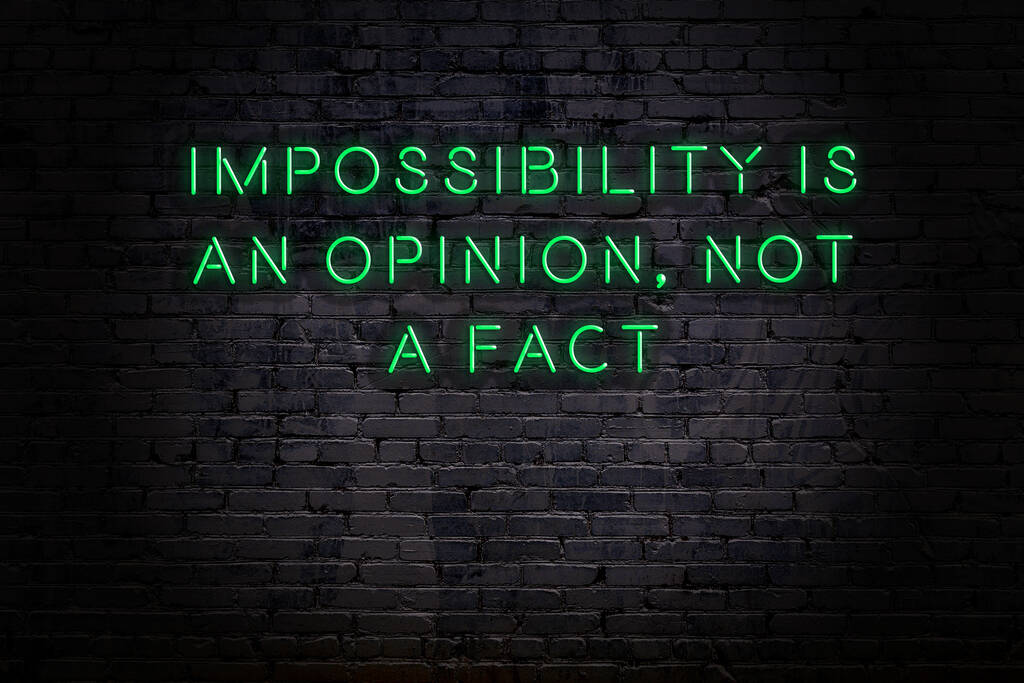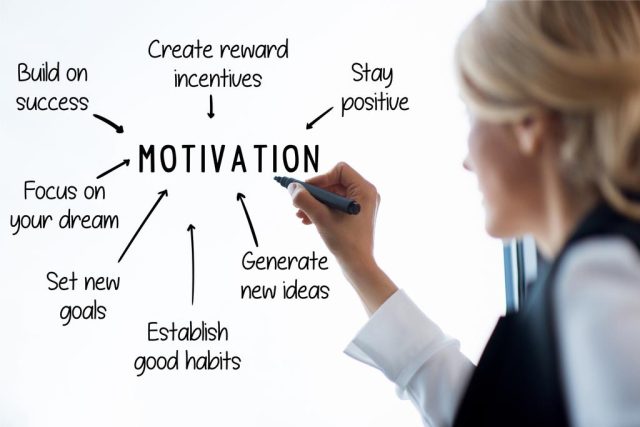Motivation vs Discipline: Finding the Perfect Balance for Success
Finding the perfect balance between motivation and discipline is essential for achieving success in any aspect of life. While motivation provides the initial drive and enthusiasm to pursue our goals, discipline is what keeps us focused and consistent in our efforts. However, finding this balance can be challenging, as both motivation and discipline have their own strengths and pitfalls. In this article, we will explore how to strike the right equilibrium between the two, ensuring that we stay motivated without burning out and remain disciplined without feeling restricted. By understanding the underlying principles of motivation and discipline, we can harness their power to propel us towards our desired outcomes. We will discuss practical tips and strategies for cultivating motivation, such as setting clear goals, creating a supportive environment, and regularly celebrating small wins. Additionally, we will explore effective techniques for developing discipline, including time management, habit formation, and self-accountability. Whether you’re trying to excel in your career, improve your health and fitness, or pursue personal growth, achieving the perfect balance between motivation and discipline is the key to long-term success. So, let’s dive in and discover how to unlock the full potential of these two vital ingredients.
Understanding Motivation and Discipline:
Motivation and discipline are two key elements that play pivotal roles in achieving success in various aspects of life. These psychological forces drive individuals to set and pursue goals, overcome challenges, and ultimately realize their potential.
Motivation:
Motivation is the internal or external stimuli that drive a person to take action, pursue goals, and achieve desired outcomes. It can be intrinsic (coming from within, such as personal fulfillment) or extrinsic (arising from external rewards or pressures). Understanding one’s motivations is crucial as it acts as the driving force behind sustained effort and perseverance.
Discipline:
Discipline refers to the ability to control one’s behavior, stay focused on goals, and follow through with commitments. It involves creating and adhering to a structured approach, even in the absence of immediate rewards. Discipline is the force that helps individuals navigate obstacles, setbacks, and distractions on the path to success.
The Importance of Motivation in Achieving Success:

Motivation is the spark that initiates action. Without motivation, individuals may lack the drive to set goals or take steps toward achieving them. It fuels passion, determination, and resilience, helping individuals stay committed to their objectives despite challenges. Motivated individuals are more likely to push through difficulties, maintain a positive outlook, and find creative solutions to problems.
The Role of Discipline in Achieving Success:
While motivation initiates action, discipline sustains it. Discipline provides the structure and consistency needed to make progress over the long term. It involves establishing routines, setting priorities, and making sacrifices to stay on course. Discipline is the key to turning short-term motivation into enduring habits that lead to success.
The Benefits of Finding the Balance Between Motivation and Discipline:

The synergy between motivation and discipline is powerful. Motivation provides the initial energy, while discipline ensures the journey is sustained. Striking a balance between the two is essential for consistent progress. Too much reliance on motivation without discipline can result in inconsistent effort, while excessive discipline without motivation may lead to burnout or lack of fulfillment.
Strategies for Boosting Motivation:
- Set Clear Goals: Define specific, achievable goals that align with your values.
- Find Intrinsic Motivators: Identify personal reasons for pursuing your goals, beyond external rewards.
- Visualize Success: Create a mental image of achieving your goals to boost motivation.
- Break Tasks into Smaller Steps: Overwhelming tasks can be demotivating; break them down into manageable steps.
- Surround Yourself with Positivity: Engage with supportive individuals and create a positive environment.
Strategies for Improving Discipline:
- Create a Routine: Establish a consistent daily or weekly routine to build discipline.
- Prioritize Tasks: Identify and focus on high-priority tasks to avoid procrastination.
- Set Deadlines: Assign deadlines to tasks to create a sense of urgency.
- Build Habits: Turn desired behaviors into habits for automatic, disciplined action.
- Learn from Setbacks: View setbacks as opportunities to learn and readjust your approach.
Finding Your Personal Balance Between Motivation and Discipline:

Personal balance involves understanding your unique motivational triggers and structuring your environment to support disciplined actions. Reflect on your goals, values, and what truly inspires you. Experiment with different strategies to discover the combination of motivation and discipline that works best for you.
Real-Life Examples of Successful Individuals Who Have Found the Balance:
- Known for his ambitious goals in technology and space exploration, Musk combines intense motivation with rigorous work discipline.
- A media mogul, Winfrey’s success is attributed to her unwavering discipline in building a media empire while staying true to her motivational principles.
- Renowned footballer Cristiano Ronaldo’s success is a result of his unparalleled motivation to be the best. His rigorous training routine, strict diet, and commitment to constant improvement showcase the discipline required to sustain a high level of performance.
- Author of the Harry Potter series, J.K. Rowling’s success is rooted in her motivation to share imaginative stories. Her discipline in overcoming rejections, maintaining a writing routine, and staying true to her creative vision played a crucial role in her literary success.
How to Maintain the Balance Over Time:
- Regular Reflection: Periodically reflect on your goals, motivations, and the effectiveness of your strategies.
- Adaptability: Be flexible and adjust your approach as circumstances and goals evolve.
- Self-Care: Prioritize physical and mental well-being to sustain both motivation and discipline.
- Celebrate Milestones: Acknowledge and celebrate achievements along the way to maintain motivation.
- Seek Support: Share your goals with others for accountability and encouragement.
Conclusion:
Achieving success requires a harmonious blend of motivation and discipline. Understanding these forces, implementing effective strategies, and maintaining a personal balance are crucial for realizing long-term goals. By embracing the power of motivation and discipline, individuals can navigate challenges, persist in the face of adversity, and unlock their full potential. Success becomes not just a destination but a continuous journey of growth and achievement.
Frequently Asked Questions (FAQS)
1. What is the difference between motivation and discipline?
- Motivation is the driving force that initiates and sustains goal-oriented behavior. Discipline involves self-control, consistency, and adherence to a structured approach to achieve long-term objectives.
2. Why is it important to find a balance between motivation and discipline?
- Finding a balance ensures sustained progress. Motivation initiates action, while discipline sustains it over time, creating a harmonious and effective approach to achieving success.
3. How does motivation contribute to success?
- Motivation provides the initial spark for action. It fuels passion, resilience, and determination, helping individuals overcome challenges and persevere toward their goals.
4. What role does discipline play in achieving success?
- Discipline is the force that transforms short-term motivation into enduring habits. It involves creating routines, setting priorities, and maintaining consistency to overcome obstacles and stay focused on long-term objectives.
5. Can you achieve success with only motivation or discipline?
- While motivation initiates action, discipline sustains it. Success is often best achieved by finding a balance between the two. Relying solely on motivation may result in inconsistent effort, while excessive discipline without motivation can lead to burnout.
6. How can I boost my motivation?
- Set clear, achievable goals; identify intrinsic motivators; visualize success; break down tasks into smaller steps; and surround yourself with positivity through supportive environments and individuals.
7. What strategies can help improve discipline?
- Establish a routine; prioritize tasks; set deadlines for accountability; build habits by repeating desired behaviors; and view setbacks as learning opportunities.
8. How do I find my personal balance between motivation and discipline?
- Experiment with different strategies, reflect on goals and motivations, and tailor your approach based on what resonates most effectively with your unique preferences and needs.
9. Can you provide real-life examples of individuals who found the balance?
- Elon Musk, known for his ambitious goals, combines intense motivation with disciplined work ethics. Oprah Winfrey’s success is attributed to a combination of motivation, vision, and disciplined execution.
10. How do I maintain the balance over time?
- Regularly reflect on goals and strategies, be adaptable to evolving circumstances, prioritize self-care for sustained motivation and discipline, celebrate milestones, and seek support for accountability and encouragement.
11. Is there a universal formula for the perfect balance?
- The balance between motivation and discipline is personal. It involves introspection, experimentation, and adapting strategies based on individual goals, motivations, and preferences.









